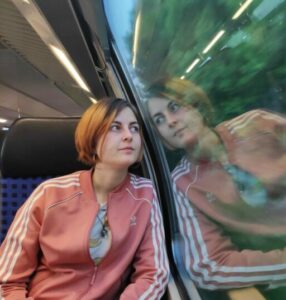
Hello and welcome to show 278 of our podcast “Absolutely Intercultural”. Our topic today is “Multicultural Individuals”. Have you ever asked yourself if you are multicultural? And if so, what makes you a multicultural individual? Is it because you were raised in a multicultural context? Or because you learned foreign languages and now are multilingual? Perhaps you travelled around the world and visited 5, 10, or 20 different countries? Multiculturalism seems to be very complex, and to be a multicultural individual can be quite challenging, but also quite fascinating.
From our guests, we learn that for some individuals the path to multiculturalism starts in early in childhood if you are exposed to different languages, traditions, and religions.
absolutely adaptable
In our first story, “absolutely adaptable”, we will listen to Esjona from Albania who is currently living and working in Germany. Esjona shares with us that she feels like a chameleon that walks between the Albanian and the German cultures and changes her skin color according to her surroundings.
absolutely natural
In our second story, “absolutely natural”, we will hear from Agnes, who is half German and half Brazilian. She was born and raised in Germany, where she has lived for her whole life. Nevertheless, Agnes feels more than just German and has a deep connection with the Brazilian culture.
absolutely challenged
In our last story “absolutely challenged”, we will listen to Vitor from Brazil who has recently come to Germany to pursue his international career. Vitor shares with us that on his path to multiculturalism, he had to deal with many challenges – such as homesickness.
What about you? Do you think it is worth going through this trouble to become multicultural. Or, do you think we shoud spend our energy getting to know our own culture better? Feel free to share your unique story with us.
Write a comment or mail us, we could do a follow-up interview with you in one of our next shows. On our web page, absolutely-intercultural.com, you can get more information about this show and previous episodes, and you can leave comments. And if you enjoyed the show, please like us on Facebook too.
By the way, did you know we are also on iTunes or Apple Podcasts? You can subscribe to us there for free and give us a rating and a comment.
Our next show will be coming to you on 7th October.
Until then – make up your mind about multiculturalism –
Bleiben Sie absolut interkulturell!
The host of this show is: Dr. Laurent Borgmann
Chief Editor: Natalia Obikhod
